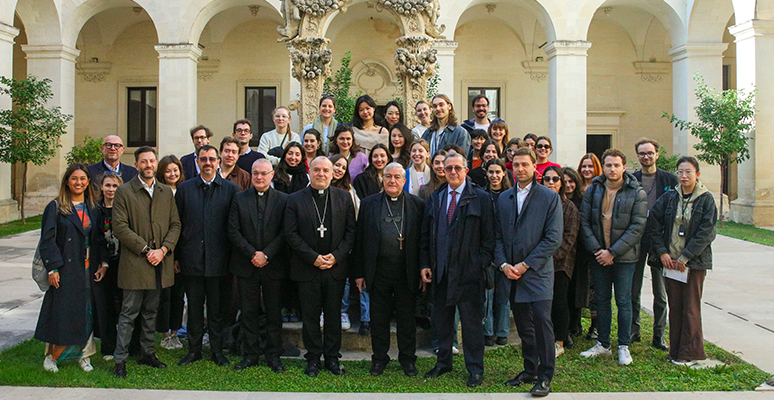
- Start date
- Duration
- Format
- Language
- 2 mar 2026
- 12 days
- Class
- English
To grasp international art market dynamics and understand the roles of collectors, investors, galleries, advisors, fairs, and auction houses.
Marking its 10th anniversary, the Master in Arts Management and Administration (MAMA) at SDA Bocconi starts a new chapter under the leadership of Academic Director Piergiacomo Mion Dalle Carbonare.
Based in Milan, MAMA is a full-time, one-year program designed for participants with an average of five years’ experience, many with backgrounds in the humanities or coming from career transitions. Its immersive format blends classroom instruction with hands-on learning, including seminars, internships, consulting projects and a modern-day Grand Tour through Italy’s cultural institutions. "Italy is our training ground," says Mion Dalle Carbonare. "It’s a country rich in beauty, but also in complexity. And that combination makes it the ideal place to train cultural managers who can work anywhere in the world".
While officially launched in 2015, MAMA builds on over two decades of SDA Bocconi’s research and teaching in arts management. "The program is the output of our research," explains Mion Dalle Carbonare. "Our faculty actively contribute to the field and their work shapes the curriculum". This dynamic relationship between theory and practice has helped establish MAMA's identity and it has contributed to broader recognition of management as an essential component of cultural work. "There’s still the stereotype that a 'Bocconi graduate' only talks numbers", he adds. "But we’re training professionals who understand strategy, innovation and the long-term public value of culture”.
Looking forward, the newly-appointed Director has identified three key priorities for MAMA’s evolution. The first is activating a formal alumni community. While many graduates already return as guest speakers or internship partners, the goal is to create more structured opportunities for mentorship, networking and continuous learning. "We see MAMA as a long-term resource," says Mion Dalle Carbonare. "A space where cultural leaders stay connected, keep learning and help each other grow”.
The second priority is the creation of a new professional advisory board, distinct from the existing academic one. Made up of leaders from across heritage, performing arts and art markets, the board will offer insights into sector trends, strengthen institutional relationships and support fundraising initiatives.
The third is curriculum development. New thematic seminars on AI, HR strategy, European funding and digital marketing will begin next year. Additionally, a new format for final projects will allow students to complete short-term consulting assignments with cultural organizations, more flexible and targeted than traditional internships.
The program’s evolution reflects the shifts taking place across the cultural landscape. "Cultural institutions today don’t just compete with each other", explains Mion Dalle Carbonare. "They compete with every other kind of experience, from TV shows to fitness classes". In this dynamic environment, success is no longer measured solely by audience numbers but by the ability to create meaningful value for individuals and communities. That requires managing complexity, interpreting societal needs and evaluating long-term impact.
At the same time, shrinking public funds have pushed cultural organizations to demonstrate resilience and innovation. For Mion Dalle Carbonare, this means preparing students to navigate and lead through change: "Innovation must be guided. Intentionally, thoughtfully, creatively", he notes.
Mion Dalle Carbonare also reflects on the program’s journey to date: "We wouldn’t be here without the work of Professor Alex Turrini, who created MAMA, and Professor Andrea Rurale, who led it through its first ten years. They built the foundation, now it’s time to grow from it."
As MAMA celebrates its 10th anniversary, the program honors its achievements while setting its sights on the challenges ahead. Its next phase will be shaped by collaboration across sectors, strategic growth and a renewed commitment to preparing professionals who can lead with vision, adaptability and a deep understanding of culture as a force for societal transformation.
SDA Bocconi School of Management

To grasp international art market dynamics and understand the roles of collectors, investors, galleries, advisors, fairs, and auction houses.
